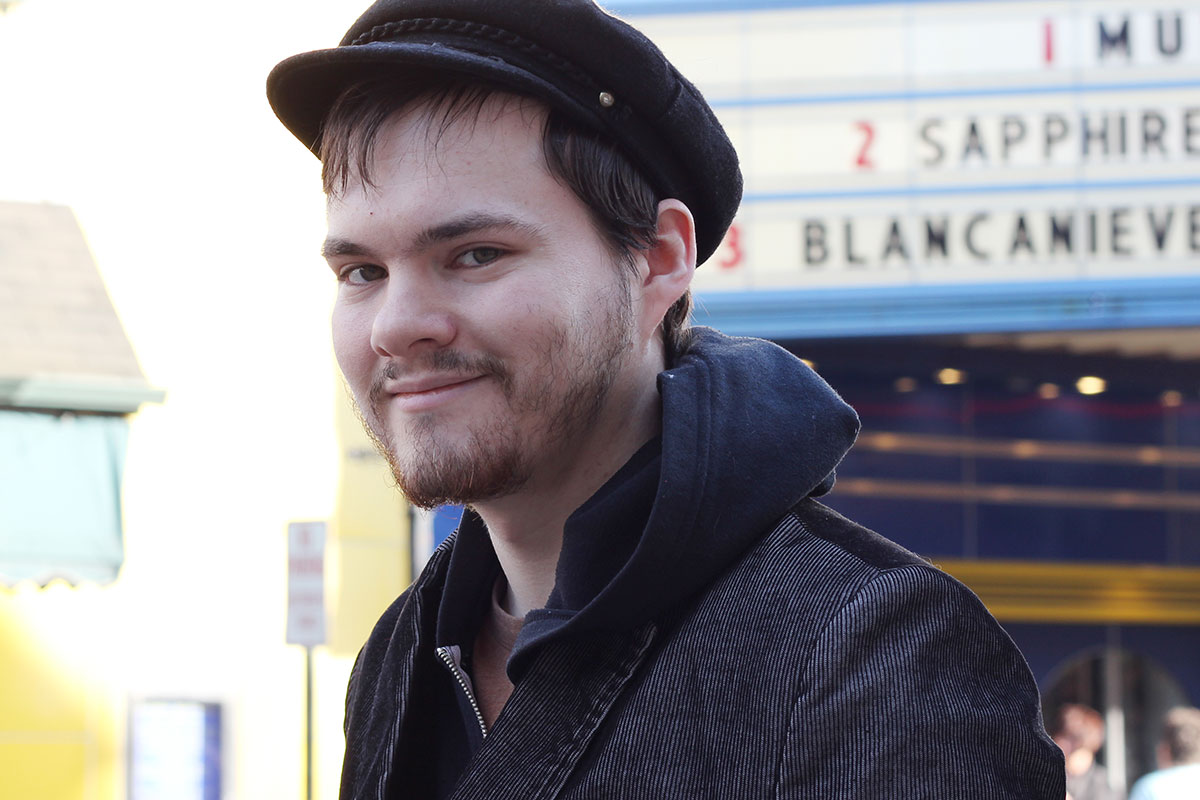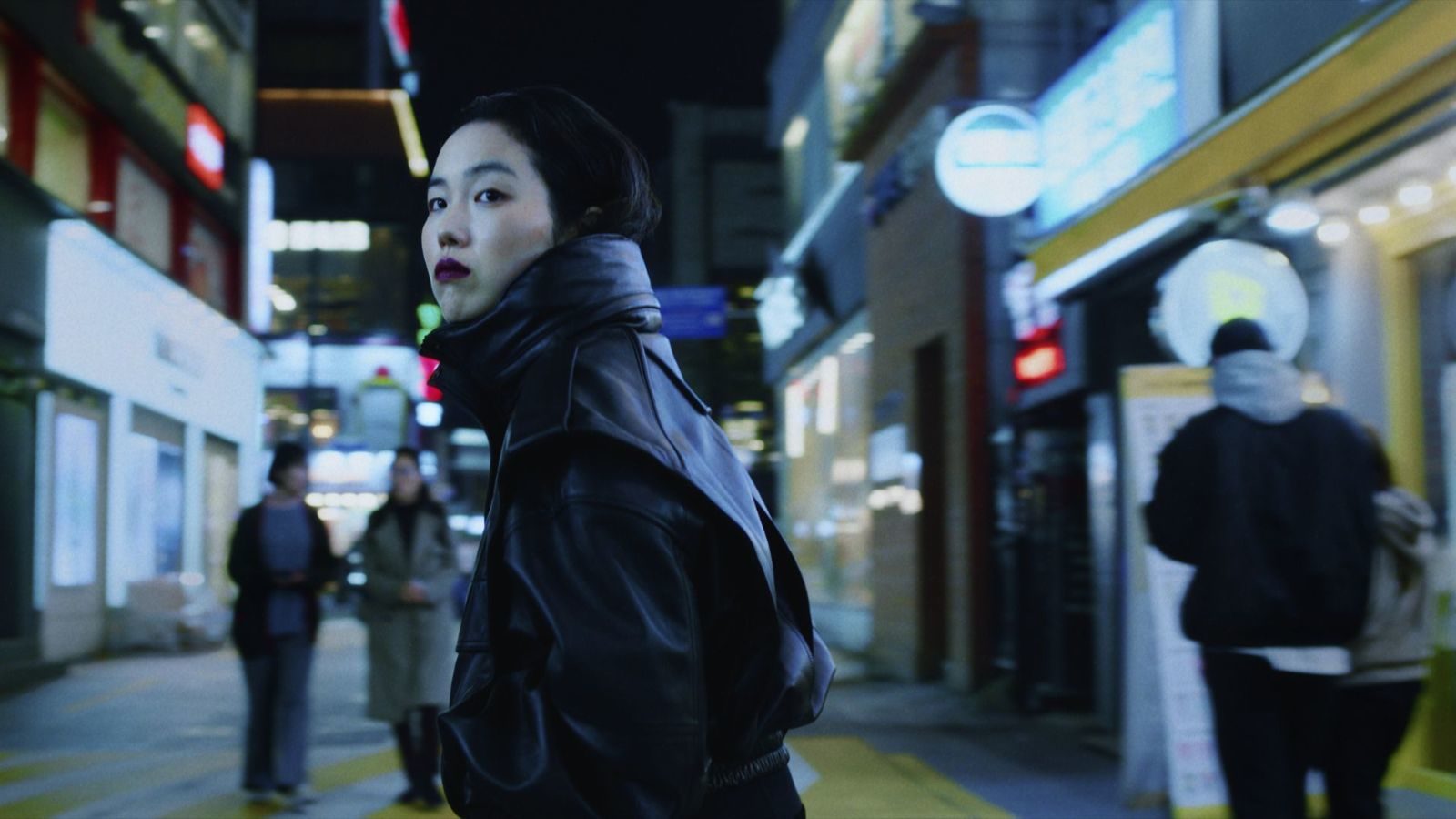It’s always a thorough disappointment when you’ve sat through a lovely movie in a mostly empty theatre and then you watch it fill up with people for the big-ticket item that follows. That happened at this year’s New York Film Festival when Davy Chou’s asymmetrical “Return to Seoul” received a poor showing minutes before a full house walked up for Maria Schrader’s enervating and pointless “She Said.” “Return to Seoul” is a fascinating time because it seems to want to say gentle and honest things about life with a secondhand identity but keeps bursting into darker ideas like the Kool-Aid Man interrupting a funeral. The impression one is left with is rather like director Chou doesn’t actually know how good he is. After an excellent and pointedly Godardian opening in which Freddie (Park Ji-Min) our hero, arrives at a hostel in Seoul and makes friends with some locals in a hurry, the film slows to a too respectable (hungover might be a better word) crawl so she can meet her biological father (Oh Kwang-Rok) and the family he made since giving Freddie up for adoption.
Freddie makes it clear that she doesn’t want the life her father wants for her now that they’ve reconnected. Just when it seems like there must be some change between them, the film jumps forward in time two years, once again reintroducing Chou’s razor-wire camera from the opening and his eye for gritty details. But this too fades again as the film slows down, then ramps up, then slows down, etc. Chou’s only real crime is he finds everything about Freddie’s life equally interesting (it’s his movie, why wouldn’t he?) until he doesn’t (hence the ellipses) but he doesn’t bring the same focus and style to each section. The family stuff plays out like a very polite, depressive drama. The bits where Freddie hops beds and becomes an arms dealer? That’s all in some netherworld that simply shocks everything else it touches like the third rail.
Still, these are interesting problems to have, and it figures that a movie that’s about translating languages and identities should itself seem to get lost in translation. The big picture morality of Freddie arming South Korea against potential invaders is reflected in her own defense of her heart, but the film is only prepared for the little battles, not the big ones, which means her erstwhile Graham Greene lifestyle never finds purchase in the narrative, though the form screams for its implications. There’s a gorgeous pop song by Junghwa Lee that crops up three times throughout the movie that is also the movie’s troubles in a nutshell. The song always sounds like it’s coming through headphones. It wants to explode. Chou never allows himself to do the same, and so the film never becomes its ideal self.

Nevertheless, I missed this film’s oblong heartbeat the second “She Said” started. If I could simply say “don’t see it” and call it a day I would, but that’s hardly the critic’s job, is it? It’s not even that the film is made up entirely of indifferently captured coverage of its cast of characters getting into cars, driving cars, getting out of cars, walking to lunches, pretending to type, getting cabs, taking trains, getting into still more cars (cut the plot and dialogue and you’d have a hell of a post-structuralist work on your hands here)—it’s that the movie, its writer, producers, director, and cast have all already done the work of explaining this project’s import for you. What need is there for a critic to say how very brave and important this movie is when every five minutes one of the characters helpfully says it for you? And then an ending crawl reminds us after this glorified Zoom call of a movie just how important the investigation at the heart of the movie really was.
Here’s the thing: Yes, it’s absolutely true that the work done by New York Times reporters Megan Twohey and Jodi Kantor was a crucial first step to outing Harvey Weinstein and eventually seeing him behind bars. The trouble is it’s difficult to make the case that it’s had the lasting impact the movie claims it has. After all who produced it? Brad Pitt, currently battling domestic abuse allegations. Just about every famous man who got called out for sexual abuse, bigotry, or battery in the wake of the Weinstein investigation is still working. David O. Russell has a movie out with Taylor Swift in it. Louis CK won a Grammy this year. Mel Gibson’s got seven movies on the horizon. No one in Hollywood actually gets held accountable.
So making a movie in which Zoe Kazan bursts into tears when Ashley Judd (playing herself—odd choice considering the vast array of terrible celebrity impressions all throughout) agrees to go on the record feels like celebrating sometime after the starting gun and before the second leg of the race. “As a mother and a Christian,” Judd says, she must do the right thing. Presumably that’s also why she agreed to be in this artless Wikipedia entry of an Oscar competitor.
I think everyone who came forward to tell their stories should be rewarded with better work than this, which grasps desperately for Alan J. Pakula and manages a blurry cellphone image of his work. “The Assistant” said all this a few years back imperfectly, sure, but succinctly; we don’t need a movie that zooms in on a word document like it’s uncovered the missing Kennedy assailant, mistaking grandiloquence for import, trying and miserably failing to do the same. Everyone who’s going to see this movie knows how it ends, and I’d be shocked if there’s anyone who gets surprised along the way.

A much better “based on a true story” accounting across the festival is Marco Bellocchio’s magnificent “Exterior Night,” about the kidnapping of former Italian Prime Minister Aldo Moro in 1978. Bellocchio has told this story once before in the blistering “Good Morning, Night” back in 2003, but this six-part miniseries allows him even greater depth than he was allowed in that admittedly still excellent exercise. If you count it as a remake of the earlier film, that means the two greatest moving pictures of the year are mini-series based on the filmmakers’ earlier works; Olivier Assayas’ “Irma Vep” remake for HBO and now Bellocchio’s “Exterior Night.”
If I had ten thousand words, I wouldn’t begin to scratch the surface of Bellocchio’s achievement here. “Good Morning Night” is a film about the thrill of direct action, the psychedelic externalization of the political (which must usually be internal in our waking lives), of having performed an absurd, unthinkable act to change the world. “Exterior Night” is something else. It’s about Moro’s kidnapping, again, of course, but more than that it’s about the awkward and awful inextricability of the personal from the political. How can you decide anything is private if you’ve made the decision to live a life in the public eye, for the people?
No shape of Moro emerges in “Good Morning Night,” but in “Exterior Night” he cuts a figure we’ll all recognize; somewhere between a radical and a garden-variety pragmatic politician who’s trying to use the existing political infrastructure for good, aware that a compromised version of progress may not be any progress at all, but too timid in the face of the very real and very violent future of his own party (he was Prime Minister in the ‘60s and president of the Christian Democratic Party in the ‘70s). His unwillingness to bend or break the rules rubbed radicals the wrong way and thus he was an easy target. If Bellocchio has chosen to return to Moro’s story it’s because he sees an awful lot of its resonance everywhere he looks.
Unlike in his early work, he gives Moro the fullness of his vast and complicated formal consideration. Whenever Moro’s not on screen you miss him. Why should this be? We know little about him beyond his moral outlook, his way with his family, and his friends (who happen to include the pope [Toni Servillo]). So why do we want him to survive even though we know very well he doesn’t? Even when we’re in the company of the terrorists who kidnapped him and plan to kill him, a vision of his inner life emerges through negative space. If these guys hate him, here’s what he must be. The trouble there is that we also understand why the Red Brigades captured Moro, and why some of them want him to live and die. Servillo’s always welcome presence is fun because he played Giulio Andreotti in Paolo Sorrentino’s only grade A movie, “Il Divo,” and Andreotti was also targeted by the Red Brigades but his police protection was too strong to try fighting. He was one of the many who let Moro go without too much of a fight.
To perhaps cut through the fog a little, two of this movie’s most obvious reference points are Robert Bresson’s “The Devil, Probably” and Sam Peckinpah’s “The Wild Bunch.” What is the moral way out of a quagmire like Europe in the ‘70s? There have been dozens of movies about the way Europe was folding in on itself during the decades of upheaval following the war years (going as far back as Rossellini’s “Germany Year Zero” and Godard’s “Le Peitit Soldat”) and now that the makers of those movies are dead (Godard’s recent death is an unfortunate but imperative reminder that we’re running out of radicals) we need Bellocchio’s panoramic view of the violence more than ever.
Godard is dead, which means Bellocchio is our last Marxist modernist standing, and, not to put too fine a point on it, “Exterior Night” does feel rather like a career summation after the very personal admissions of “Marx Can Wait,” his excellent non-fiction film from last year’s New York Film Festival. Like his version of Moro, he’s confessing, and though it is an enormous burden to listen to the confession of the last man standing, the artist who saw the hope of unification and socialism perish in his lifetime, it is also exhilarating. We should all be so gifted in our chosen field and so steadfastly full of care and belief in the political future of people we’ll never live to meet. Bellocchio is, perhaps, my choice for greatest living filmmaker, and “Exterior Night” is as close to “Ulysses” as an artist as unselfish as Bellocchio will allow himself to create. Godard is dead. Olmi is dead. Antonioni is dead. Bertolucci is dead. Pasolini is dead, and yes, Moro is dead. We must treasure Bellocchio as he enters his late period; he seems ready to keep making his best work.












